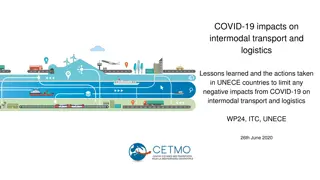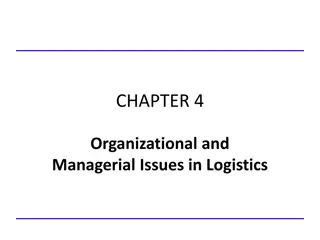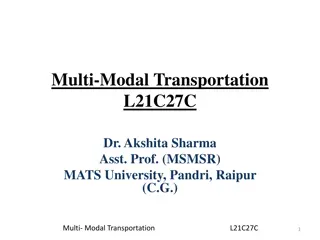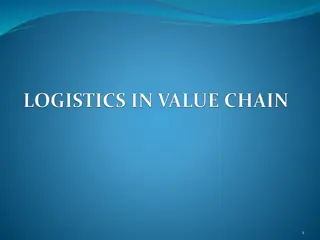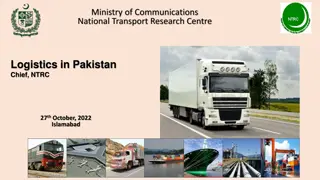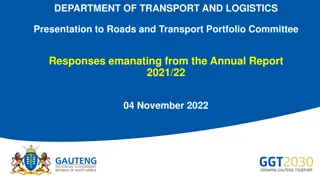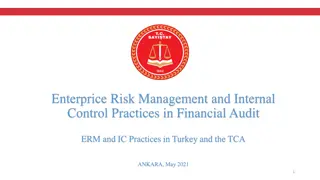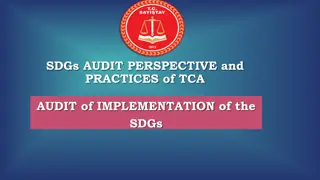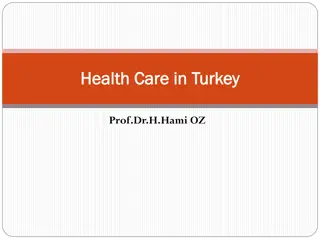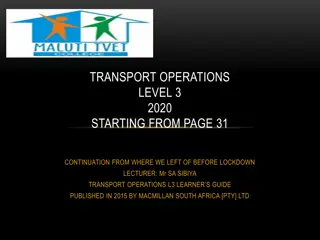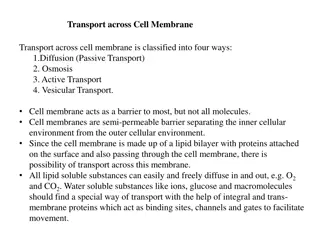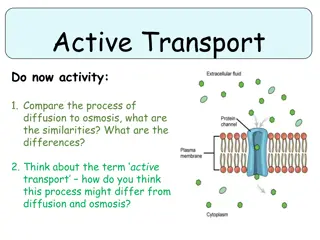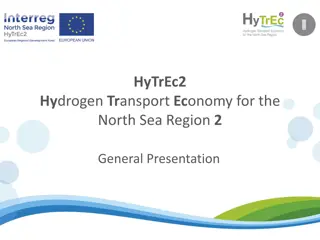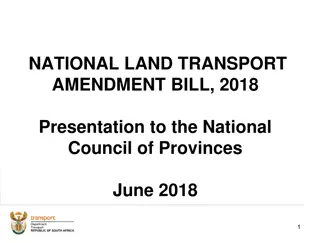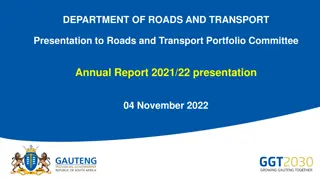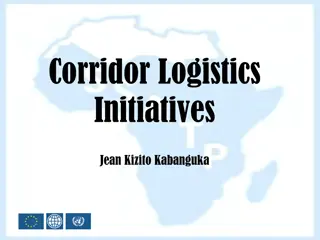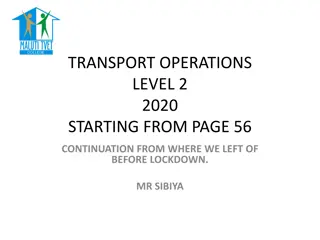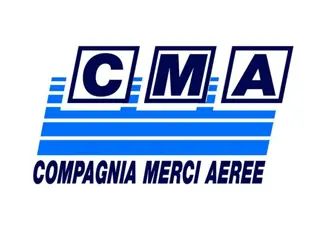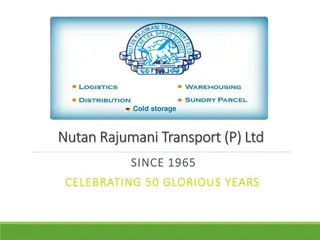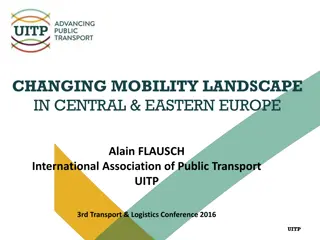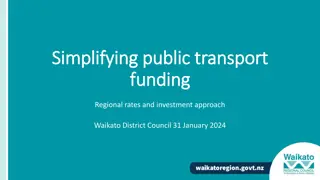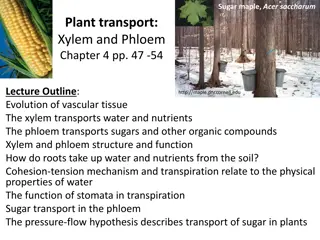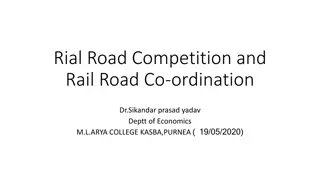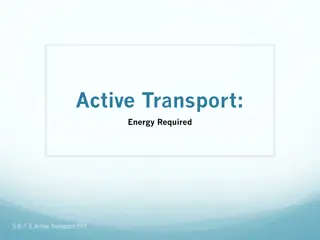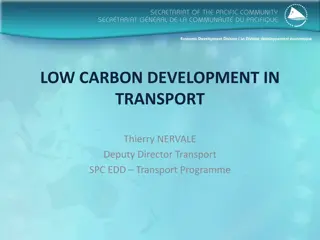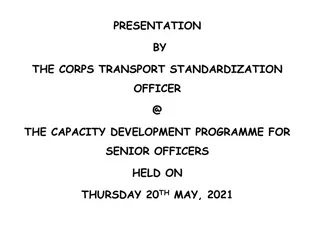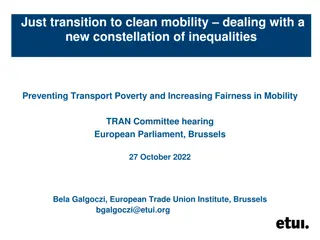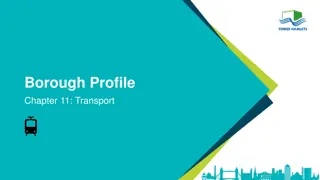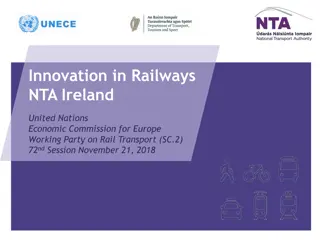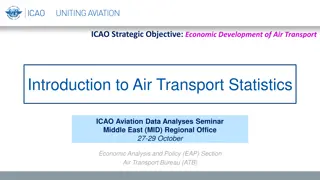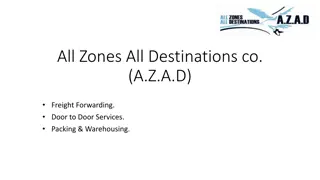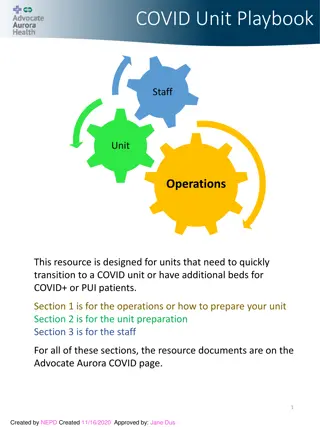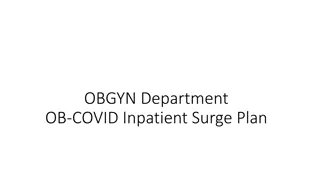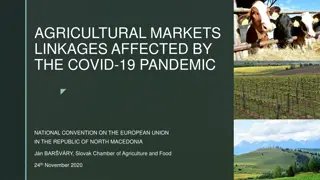Impact of COVID-19 on Intermodal Transport & Logistics in Turkey
Turkish Ministry of Transport and Infrastructure discussed COVID-19 impacts on intermodal transport and logistics in a virtual meeting. The session highlighted lessons learned and actions taken in Turkey to mitigate negative effects. Findings include a decrease in ships calling Turkish ports, increased handling times, delays in the hinterland, and capacity increase in storage depots. Positive developments included road transport safety measures and trailer changes to avoid quarantine.
Download Presentation

Please find below an Image/Link to download the presentation.
The content on the website is provided AS IS for your information and personal use only. It may not be sold, licensed, or shared on other websites without obtaining consent from the author. Download presentation by click this link. If you encounter any issues during the download, it is possible that the publisher has removed the file from their server.
E N D
Presentation Transcript
Republic of Turkey Ministry of Transport and Infrastructure Directorete General for Regulation of Transport Services Virtual meeting of the Friends of the Chair of WP.24 on the COVID-19 impacts on intermodal transport and logistics 26 June 2020 Dr Murat Kor ak Head of Logistics and Combined Transport Department murat.korcak@uab.gov.tr
Session-1 Lessons learned and the actions taken in Turkey to limit any negative impacts from COVID-19 on intermodal transport and logistics. 2
Survey study A survey study was done by using a questionnaire from 68 major ports in Turkey. The answers (percepsions) were reported as the percentages. Ex: %10 of the ports think that the ships calling ports were decreased Real statistical numbers for the trade values would be ready at the end of 2020. 3
The decrease on the number of ships calling Turkish ports Ships callingTurkish ports 0% Bulk Solid Bulk Liquid General Cargo Container Ro-Ro Passenger -10% -8% -11% -15% -20% -19% -21% -23% -25% -30% -30% -33% -40% -42% -43% -43% -50% -46% -47% -50% -60% -70% -80% -78% -80% -80% -90% March April May 4
The increase in the handling time on Turkish ports Increase in handling time 120% 100% 100% 80% 63% 62% 62% 61% 60% 58% 60% 54% 53% 52% 50% 50% 44% 41% 40% 38% 40% 21% 20% 11% 0% Bulk Solid Bulk Liquid Generl Cargo Container Ro-Ro Passenger March April May 5
The delays in the hinterland of Turkish ports Increase in delays 60% 57% 56% 50% 47% 47% 40% 29% 30% 23% 20% 18% 20% 17% 10% 0% Railroad International Trucks Domestic Trucks March April May 6
The capacity increase in storage depots and storehouses Capacity Increase 60% 50% 50% 40% 36% 30% 25% 25% 25% 23% 23% 22% 20% 17% 17% 17% 10% 0% 0% Packaged goods Medical products Solid bulk goods Liquid bulk goods March April May 7
Positive developments during Covid-19 disease Road Transport Safe zone- Trailer change to avoid quarantine implementations. Facilitation on the certification processes for the companies 8
Positive developments during Covid-19 disease Rail transport Pushing the sterilized wagons from the border. Extention on the certifications of critical personnel Demand increase for Baku-Tblisi-Kars line 9
Positive developments during Covid-19 disease Maritime transport Extention on the certifications of critical personnel Facilitation on the certification processes for the companies Demand increase for RoRo lines 10
Conclusion We faced diffuculties due to; Lack of human sources due to quarantine implementations, Custom formalities, Cost increases However, Ports and road transport were fully operational during the Covid-19 disease Rail transport is working over capacity Financial support to the companies was available from government
Thank you for your attention. murat.korcak@uab.gov.tr 12


